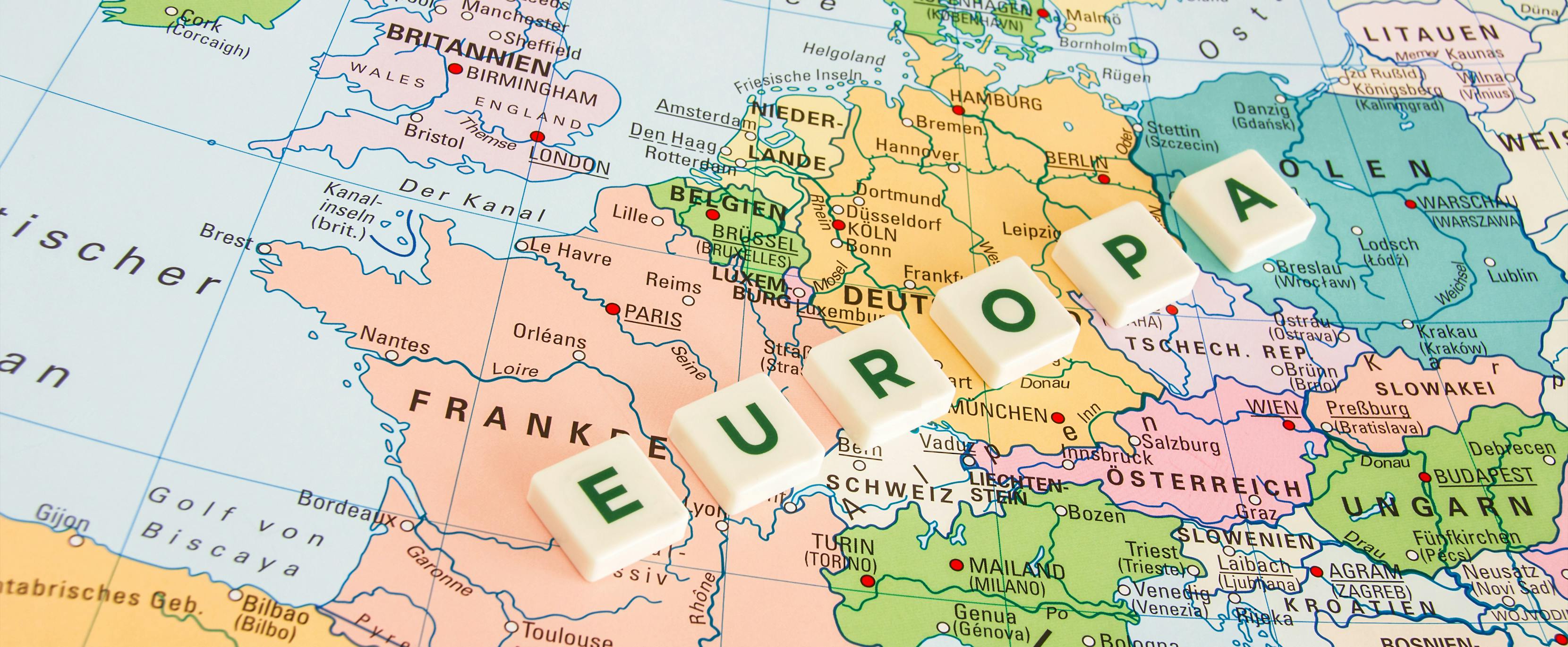
The relationship between Switzerland and the EU poses challenges for all Swiss electricity market players. In the summer of 2023, the Federal Council adopted benchmarks for a negotiating mandate with the EU, thereby driving forward the relationship. The decision on the negotiating mandate is now imminent. In an interview, Marc Ritter, CEO of AEW Energie AG, explains the significance of this development and of a potential electricity agreement with the EU for a Swiss power supply company.
Marc Ritter, AEW Energie AG is an integrated energy service provider for the canton of Aargau. What role does the relationship between Switzerland and the EU play for a company like yours?
At AEW, we are indirectly affected by the relationship between Switzerland and the EU, not least as a market player for the purchase and sale of electricity. Among other things, a stable relationship with the EU ensures a secure energy and electricity supply and helps us to achieve a transparent and liquid electricity market. This in turn gives us better options when it comes to recovering and procuring electricity.
As a co-owner of Axpo Holding, we also recognise the value of Swiss pumped storage power plants for Europe. Swiss power plants currently have restricted access to the European internal electricity market. Pumped storage power plants in particular have great potential to compensate for fluctuations in the production of renewable energies in our neighbouring countries in the short and medium term.
What impact does the lack of an electricity agreement have on AEW Energie AG?
One of the consequences is that Switzerland is unable to participate in the EU’s coupled electricity markets and is therefore not part of the capacity calculation regions. This means that Switzerland is not considered when the cross-border capacities provided for these electricity markets are calculated. This has led to an increase in unplanned flows through Switzerland, with a negative impact on grid security.
Energy exchange will become more and more restricted in terms of liquidity, which will accentuate the associated differences in country-specific price levels. As a result, we are penalised or excluded from various options when it comes to setting prices, and we can only buy and sell energy to a limited extent. It can be assumed that electricity prices, especially for balancing energy, will become more expensive in the longer term. From a technical and commercial perspective, we should therefore be integrated into the European electricity market.
Does AEW Energie AG rely on electricity imports in the winter?
Although we produce a high proportion of electricity ourselves at AEW, we are a part of the Swiss energy system, and as such, we are also dependent on electricity imports (in the winter months) and the possibility to recover electricity (in the summer months). We have physical connections (discharges) with Germany, particularly with our power plant participations on the Rhine, where we also recover the kilowatt hours produced by run-of-river power plants.
Until now, the complete liberalisation of the electricity market has been regarded as a basic prerequisite for participation in the European internal electricity market and is therefore likely to be a condition for the conclusion of an electricity agreement with the EU. What is your stance on the issue?
The electricity market has been fully liberalised in all the countries surrounding Switzerland for over 20 years. The current partial market liberalisation with two different systems is not ideal. Customers who consume more than 100,000 kWh of electricity per year are free to choose their energy supplier, while those with a lower annual electricity consumption, particularly private households and small commercial enterprises, have been unable to do so until now. In the interests of our customers, we are in favour of the complete liberalisation of the electricity market so that all our customers have the freedom to choose their energy supplier in the future.
The current apparent distortions in the basic supply tariffs for 2023 and 2024 applied by Switzerland’s energy supply companies, of which there are more than 600, are causing a lack of understanding among end customers. Depending on whether or not a power supply company produces its own electricity, and on which calculation system it uses for the tariff structure, this results in major differences in the energy component of the electricity price for customers receiving the basic supply. A complete liberalisation of the electricity market will not necessarily lead to lower prices, but it should promote a certain degree of harmonisation of the price level for the energy component. In addition, the end customer is then responsible for concluding their own contract and can make a conscious decision in favour of the supplier of their choice.
A stable relationship with the EU ensures a secure energy and electricity supply and helps us to achieve a transparent and liquid electricity market.
Marc Ritter, CEO der AEW Energie AG
Are there other areas in which an electricity agreement with the EU would open up new opportunities for you?
We see Switzerland as an integrated energy system in the European environment, and AEW is part of the Swiss energy system. For AEW, too, a stable, harmonised relationship with the EU is therefore of vital importance with regard to planning security, flexibility and, last but not least, security of supply.
In your opinion, what are the alternatives if no electricity agreement is concluded with the EU in the longer term?
We must be aware that without an electricity agreement, we will continue to isolate ourselves within Europe and will be increasingly excluded from various market areas, such as the control energy market. This will make security of supply more unstable, and we will become less and less resilient, especially as we will remain dependent on electricity imports in the winter for a long time to come. Consequently, we must seek to establish bilateral cooperation with neighbouring countries, at least at a technical level. This is something that Swissgrid must pursue or has already been pursuing for some time.




